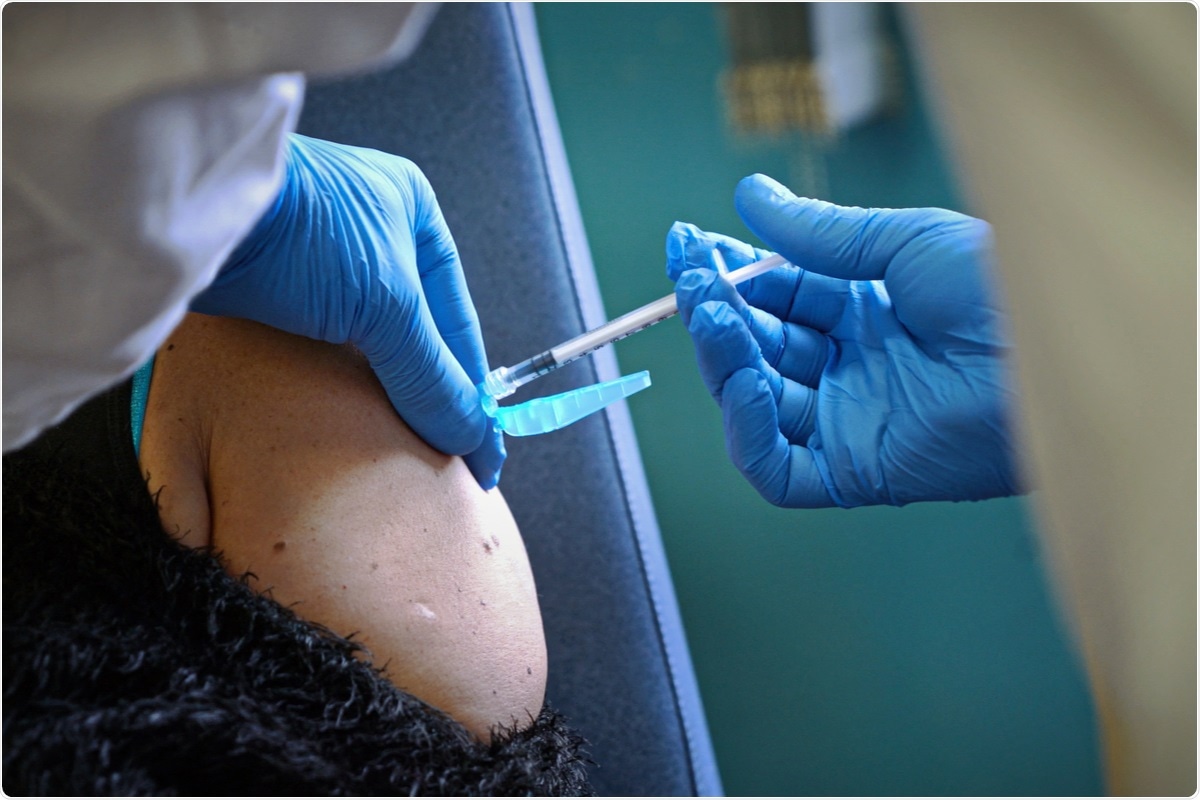Severe acute respiratory syndrome coronavirus 2 (SARS-CoV-2) has a wide array of clinical symptoms and several other skin manifestations like urticarial, vesicular, vasculitic, and chilblain‐like lesions. Recently, delayed skin reactions were reported in one percent of individuals vaccinated against SARS-CoV-2.
 Study: Delayed skin reaction after mRNA-1273 vaccine against SARS-CoV-2: a rare clinical reaction. Image Credit: MikeDotta/ Shutterstock
Study: Delayed skin reaction after mRNA-1273 vaccine against SARS-CoV-2: a rare clinical reaction. Image Credit: MikeDotta/ Shutterstock
The post-vaccine rashes on the arm administered with the vaccine are called the "COVID arm." It usually occurs after the first dose of vaccination. However, it doesn't affect the second dose, and it is advised to continue with the second dose as scheduled. The vaccine can be administered into the other arm if required. Although currently, it is yet unclear why the "COVID arm" occurs post mRNA vaccinations.
In a study recently published in the European Journal of Medical Research, a group of researchers reported that skin reactions after the administration of the mRNA-1273 vaccine are rare yet possible.
What did the team do?
The team collected data, from their respective institutions, from 6821 individuals on their mRNA-1273 vaccination and side effects. The data were analyzed, and 11 patients were identified as having side effects of interest. These patients discussed their side effects further.
What did the researchers find?
Eleven of 6921 individuals had developed rashes or delayed skin reactions after either of the doses of the mRNA-1273 vaccine. Out of these eleven individuals, eight patients developed the rash after the first dose, whereas, in the others, it occurred after the second dose.
The team also observed that more females were affected. The severity of these rashes can be determined by the kind of treatment they received. Four out of the eleven patients needed antihistamine treatment, which determines a mild case. Whereas two needed strong additional topical steroids. However, all the cutaneous manifestations were resolved within fourteen days. It was also established that none of the first dose skin manifestations prevented the second dose administration. Moreover, no long-term cutaneous sequelae were found in any of the reporting individuals.
What did the physicians find?
Delayed skin reactions and manifestations are rare post-vaccination events, mostly noted some days post mRNA-based vaccination. The new cases reported following the first dose were 0.8–1.0% and 0.2–1.1% after the second. These lesions vary from acute allergic and other immediate local effects attributable to the vaccination itself. The event is temporary and mostly resolves within three to five days, usually without any treatment. When medical intervention is required, topical steroids and oral antihistamines are incorporated with a good response.
The skin reactions and manifestations after mRNA vaccinations are proposed to be a dermal hypersensitivity reaction (DHR). DHR is not diagnostic for any specific disease or etiology. However, it is most commonly observed in patients with urticaria, drug reactions, and spongiotic (eczematous) dermatitis.
What did the research team conclude from the study?
Delayed local skin reactions, also referred to as "COVID arm" when COVID-19 vaccines are administered, are a rare side effect. It can present as a localized, transient, erythematous, and edematous patch some days after the first or second dose of the mRNA-based COVID-19 vaccines.
Topical steroids and oral antihistamines are effective pharmacological aids in settling these lesions and controlling their symptoms. However, the vaccinees should be told that a "COVID arm" is a harmless side effect of the vaccination, and it should not scare them from taking the second scheduled dose of the vaccine.
It is interesting to note that other conditions have clinical manifestations comparable to the "COVID-arm." The doctors thus understood that there might be a similar immunological response of the body towards vaccination. Nevertheless, additional research is needed to investigate the event further and explain the immunologic mechanism that the body goes through post-vaccination.